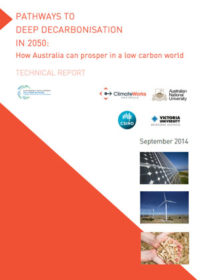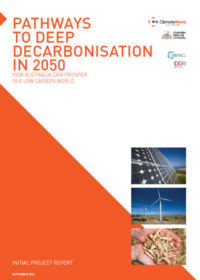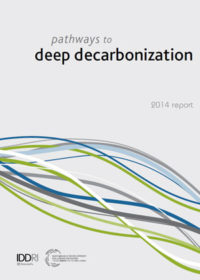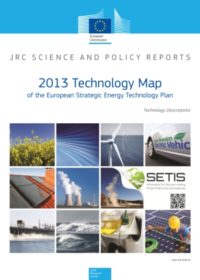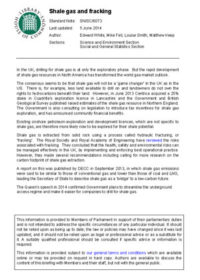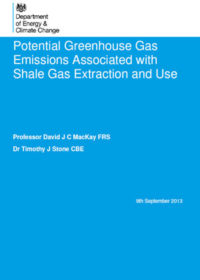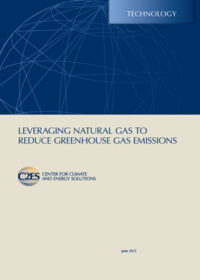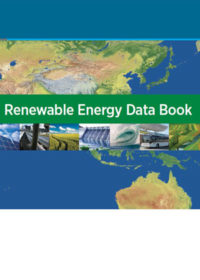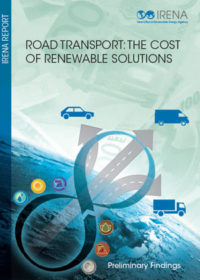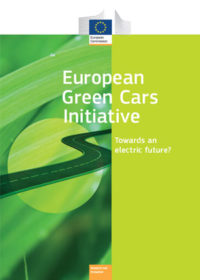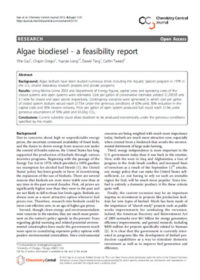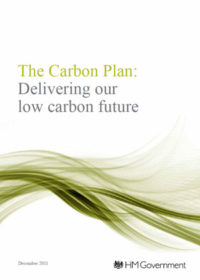Resources
Publications
Our publications, reports and research library hosts over 500 specialist reports and research papers on all topics associated with CCS.
View our Publication Library Disclaimer.
Filter by
Pathways to deep decarbonisation in 2050: how Australia can prosper in a low carbon world. Technical report
23rd September 2014
Topic(s): Carbon capture use and storage (CCUS), Economics, Energy efficiency, Fuel switching, Nuclear energy, Renewables
This report presents the technical analysis supporting ClimateWorks’ Pathways to Deep Decarbonisation in 2050: How Australia Can Prosper in a Low Carbon World. It provides readers with details on assumptions, data, and modelling tools. This Technical Report provides detailed results and a discussion of limitations.
Disclaimer
The content within the Global CCS Institute Publications, Reports and Research Library is provided for information purposes only. We make every effort and take reasonable care to keep the content of this section up-to-date and error-free. However, we make no claim as to its accuracy, currency or reliability.
Content and material featured within this section of our website includes reports and research published by third parties. The content and material may include opinions and recommendations of third parties that do not reflect those held by the Global CCS Institute.
Pathways to deep decarbonisation in 2050: how Australia can prosper in a low carbon world
23rd September 2014
Topic(s): Carbon capture use and storage (CCUS), Economics, Energy efficiency, Fuel switching, Nuclear energy, Renewables
Pathways to Deep Decarbonisation in 2050: How Australia Can Prosper in a Low Carbon World presents an illustrative deep decarbonisation pathway for Australia - just one of many possible pathways - developed using a combination of well-established modelling tools to identify feasible and least-cost options. The frame of reference for the analysis is that all countries decarbonise by 2050, consistent with the objective of limiting the increase in global mean surface temperature to 2°C in order to avoid dangerous climate change.
This initial project report shows that Australia can achieve net zero emissions by 2050 and live within its recommended carbon budget, using technologies that exist today (including carbon capture and storage), while maintaining economic prosperity. Major technological transitions are needed in some industries and many activities, but no fundamental change to Australia’s economy is required. Economic activity and Australian incomes keep rising. The economy grows by 150% to 2050, while net emissions fall to zero and energy sector emissions are reduced by more than four fifths.
This report is accompanied by the Technical Report which gives detail on assumptions, data, modelling tools and detailed results.
Disclaimer
The content within the Global CCS Institute Publications, Reports and Research Library is provided for information purposes only. We make every effort and take reasonable care to keep the content of this section up-to-date and error-free. However, we make no claim as to its accuracy, currency or reliability.
Content and material featured within this section of our website includes reports and research published by third parties. The content and material may include opinions and recommendations of third parties that do not reflect those held by the Global CCS Institute.
Pathways to deep decarbonization: 2014 report
19th September 2014
Topic(s): Carbon capture use and storage (CCUS), Economics, Energy efficiency, Fuel switching, Nuclear energy, Renewables
This 2014 report by the Deep Decarbonization Pathway Project (DDPP) summarises preliminary findings of the technical pathways developed by the DDPP Country Research Partners with the objective of achieving emission reductions consistent with limiting global warming to less than 2°C., without, at this stage, consideration of economic and social costs and benefits.
Disclaimer
The content within the Global CCS Institute Publications, Reports and Research Library is provided for information purposes only. We make every effort and take reasonable care to keep the content of this section up-to-date and error-free. However, we make no claim as to its accuracy, currency or reliability.
Content and material featured within this section of our website includes reports and research published by third parties. The content and material may include opinions and recommendations of third parties that do not reflect those held by the Global CCS Institute.
2013 technology map of the European Strategic Energy Technology Plan (SET-Plan): technology descriptions
9th April 2014
Topic(s): Carbon capture use and storage (CCUS), Energy efficiency, Fuel switching, Nuclear energy, Renewables
This publication is a Scientific and Policy Report by the Joint Research Centre of the European Commission. This fourth edition of the Technology Map of the European Strategic Energy Technology Plan (SET-Plan) addresses 22 different technologies, covering the whole spectrum of the energy system, including both supply and demand technologies, namely:
- Wind Power Generation
- Solar Photovoltaic Electricity Generation
- Concentrated Solar Power Generation
- Hydropower
- Geothermal Energy
- Marine Energy
- Cogeneration or Combined Heat and Power
- Carbon Capture and Storage in Power Generation
- Advanced Fossil Fuel Power Generation
- Nuclear Fission Power Generation
- Nuclear Fusion Power Generation
- Smart Grids
- Bioenergy - Power and Heat Generation
- Biofuels for the Transport Sector
- Fuel Cells and Hydrogen
- Electricity Storage in the Power Sector
- Energy Efficiency and CO2 Emission Reduction in Industry (the cement industry, the iron and steel industry, the pulp and paper industry)
- Heating and Cooling
- Heat Pumps
- Energy Performance of Buildings
Disclaimer
The content within the Global CCS Institute Publications, Reports and Research Library is provided for information purposes only. We make every effort and take reasonable care to keep the content of this section up-to-date and error-free. However, we make no claim as to its accuracy, currency or reliability.
Content and material featured within this section of our website includes reports and research published by third parties. The content and material may include opinions and recommendations of third parties that do not reflect those held by the Global CCS Institute.
Shale gas and fracking
5th April 2014
Topic(s): Fuel switching, Health safety and environment, Policy law and regulation
The United Kingdom’s House of Commons Library prepared this note for Members of Parliament, to summarise the status of drilling for shale gas in the UK.
Disclaimer
The content within the Global CCS Institute Publications, Reports and Research Library is provided for information purposes only. We make every effort and take reasonable care to keep the content of this section up-to-date and error-free. However, we make no claim as to its accuracy, currency or reliability.
Content and material featured within this section of our website includes reports and research published by third parties. The content and material may include opinions and recommendations of third parties that do not reflect those held by the Global CCS Institute.
Potential greenhouse gas emissions associated with shale gas extraction and use
9th September 2013
Topic(s): Fuel switching
This United Kingdom Department of Energy & Climate Change (DECC) study examines local GHG emissions associated with shale gas exploration and production. The carbon footprint includes carbon dioxide (CO2) and methane (CH4). Methane has a global warming potential 25 times greater than CO2, based on a 100-year time horizon. It also studies the effect of shale gas use on overall GHG emissions rates and cumulative emissions. Comparisons are made between the emissions associated with the use of shale gas, conventional gas, Liquefied Natural Gas (LNG), and coal.
Disclaimer
The content within the Global CCS Institute Publications, Reports and Research Library is provided for information purposes only. We make every effort and take reasonable care to keep the content of this section up-to-date and error-free. However, we make no claim as to its accuracy, currency or reliability.
Content and material featured within this section of our website includes reports and research published by third parties. The content and material may include opinions and recommendations of third parties that do not reflect those held by the Global CCS Institute.
Leveraging natural gas to reduce greenhouse gas emissions
1st June 2013
Topic(s): Domestic policy, Fuel switching
This report provides an overview of natural gas production, the climate implications of expanded natural gas use, potential uses and benefits in key sectors, and related infrastructure issues. This report explores the opportunities and challenges in leveraging the natural gas to achieve further reductions in U.S. greenhouse gas emissions. Examining the implications of expanded use in key sectors of the economy, it recommends policies and actions needed to maximize climate benefits of natural gas use in power generation, buildings, manufacturing, and transportation.
Disclaimer
The content within the Global CCS Institute Publications, Reports and Research Library is provided for information purposes only. We make every effort and take reasonable care to keep the content of this section up-to-date and error-free. However, we make no claim as to its accuracy, currency or reliability.
Content and material featured within this section of our website includes reports and research published by third parties. The content and material may include opinions and recommendations of third parties that do not reflect those held by the Global CCS Institute.
2011 renewable energy data book
1st February 2013
Topic(s): Fuel switching, Geothermal energy, Hydroelectricity, Project financing, Renewables, Solar energy, Wind energy
This handbook provides statistics and information - presented in tables and graphs - to describe the state of renewable energy technologies, capacity and growth, in the United States.
Disclaimer
The content within the Global CCS Institute Publications, Reports and Research Library is provided for information purposes only. We make every effort and take reasonable care to keep the content of this section up-to-date and error-free. However, we make no claim as to its accuracy, currency or reliability.
Content and material featured within this section of our website includes reports and research published by third parties. The content and material may include opinions and recommendations of third parties that do not reflect those held by the Global CCS Institute.
Road transport: the cost of renewable solutions
1st January 2013
Topic(s): Domestic policy, Fuel switching, Renewables
The analysis presented in this report – part of a series of cost studies from the International Renewable Energy Agency (IRENA) – suggests that the outlook for renewable energy in transport to 2020 could be very positive, as long as current policy support is enhanced and expanded.
Disclaimer
The content within the Global CCS Institute Publications, Reports and Research Library is provided for information purposes only. We make every effort and take reasonable care to keep the content of this section up-to-date and error-free. However, we make no claim as to its accuracy, currency or reliability.
Content and material featured within this section of our website includes reports and research published by third parties. The content and material may include opinions and recommendations of third parties that do not reflect those held by the Global CCS Institute.
European green cars initiative: towards an electric future?
1st December 2012
Topic(s): Economics, Energy efficiency, Fuel switching
The European Green Cars Initiative is part of the EU’s Economic Recovery Plan and of the Europe 2020 Strategy for a successful and sustainable social market economy. It is an example of action needed today in order to build towards a prosperous and sustainable future.
Disclaimer
The content within the Global CCS Institute Publications, Reports and Research Library is provided for information purposes only. We make every effort and take reasonable care to keep the content of this section up-to-date and error-free. However, we make no claim as to its accuracy, currency or reliability.
Content and material featured within this section of our website includes reports and research published by third parties. The content and material may include opinions and recommendations of third parties that do not reflect those held by the Global CCS Institute.
Algae biodiesel: a feasibility report
23rd April 2012
Topic(s): Economics, Fuel switching, Renewables
This paper, from Chemistry Central Journal, explores the costs and suitability of using algae as a biofuel. A light review of the current research is followed by an overview of production. The paper concludes with an economic feasibility assessment stating that open-pond algae as a biodiesel fuel is close to feasibility as a full replacement for diesel, but not without subsidies, considerable technology improvements, or increases in the price of fuel.
Disclaimer
The content within the Global CCS Institute Publications, Reports and Research Library is provided for information purposes only. We make every effort and take reasonable care to keep the content of this section up-to-date and error-free. However, we make no claim as to its accuracy, currency or reliability.
Content and material featured within this section of our website includes reports and research published by third parties. The content and material may include opinions and recommendations of third parties that do not reflect those held by the Global CCS Institute.
The carbon plan: delivering our low carbon future
1st December 2011
Topic(s): Economics, Energy efficiency, Fuel switching, Policy law and regulation, Renewables
This document outlines the United Kingdom’s plans to achieve decarbonisation within the framework of its energy policy: to make the transition to a low carbon economy while maintaining energy security, and minimising costs to consumers, particularly those in poorer households.
Disclaimer
The content within the Global CCS Institute Publications, Reports and Research Library is provided for information purposes only. We make every effort and take reasonable care to keep the content of this section up-to-date and error-free. However, we make no claim as to its accuracy, currency or reliability.
Content and material featured within this section of our website includes reports and research published by third parties. The content and material may include opinions and recommendations of third parties that do not reflect those held by the Global CCS Institute.
